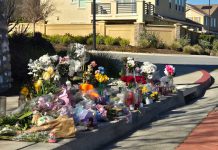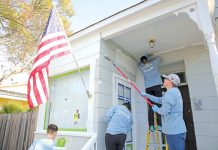“I read your article this morning, and I’m sure your inbox is going to be overflowing with applause, personal confessions, kudos, and maybe the occasional bashing by some uneducated person,” began last Thursday’s e-mail.
“Each voice that is heard touches another soul of a victim of child abuse,” read the next message. “I, as a mother, have unfortunately seen the pain that this does to the soul of a child.
“We as parents need to speak out and protect our children and see that these monsters are put away. You are a true survivor. God Bless you. Signed: A Mother helping her child heal!!”
When I asked whether she would mind if I quoted her, she replied, “I do not mind if you quote me. In some little way, maybe I can make a difference, in helping another victim become a SURVIVOR!! Your story gives us all hope for a better tomorrow. …”
As I worked on last week’s column, I began to feel kind of achy from head to toe. Even though I felt consciously fine about writing it, I felt very weird physically. It just goes to show how whatever we experience emotionally, even when we feel we are handling it well, still comes out in our bodies in one way or another.
As one reader so aptly described: “You feel like you’re wearing a concrete suit.”
When I first started telling my story, it was about 20 pages long, but as of last week, it has been honed down to a mere 600 words. Being able to retell it from different perspectives and to share it with others over time has been very helpful.
Reader Claudia Salewske gave her compassionate analysis: “I’d like to think that the reason you can take all the horrors and place them into 600 words now is because there is so much more core and strength that comprise your inner being. Those qualities fill the space.
“Kat and all that she has worked to build in terms of self-esteem, concern for others, and faith have left just a little territory that will never forget, but this tragic episode of your childhood no longer comes close to defining you.”
I’d like to think that she’s right about not just my own experience, but about all survivors who thrive in spite of tragic circumstances.
Alene Arribere captured why speaking up is so important: “I know breaking the silence is a MAJOR leap of faith in the face of a society that often forces victims into silence because of their own discomfort with the topic. Victims who speak out are made to feel guilty for talking about what happened, and are thus victimized again.
“With most major events/disasters that humans experience, talking about them is how we assimilate them into who we are (think of how many stories you’ve heard about where people were during the earthquake of 1989). Victims of abuse are denied this healing tool.
“You were so right when you said we do not have to be defined by what happened; it becomes a part of who we are, teaches us lessons, makes us stronger … but like you, I don’t want to be identified as a victim but rather as a survivor. I believe all victims will achieve survivor “status” quicker when admissions such as yours are the norm rather than a major life-changing event.”
Louise Shields wrote, “I know that you have opened the door for somebody, even if it is just one person, to feel empowered enough to come forward with their pain and ask for help!”
That ultimately, is what this is all about.
To talk to someone, call Community Solutions at (408) 779-2115, 24 hours a day, seven days a week.












